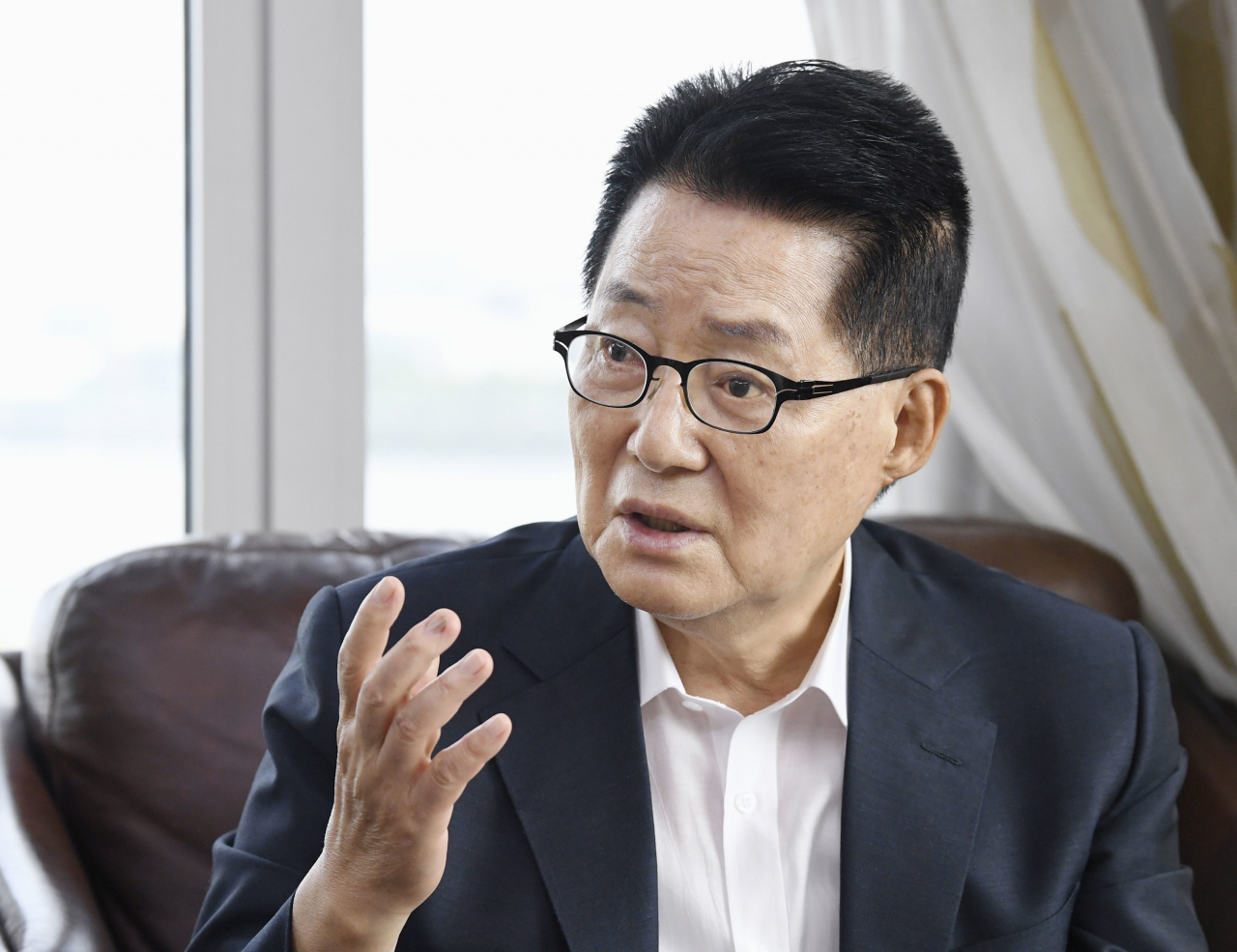 |
South Korea's National Intelligence Service Director Park Jie-won (Yonhap) |
Intelligence chiefs of South Korea, the US and Japan convened in Seoul on Monday to discuss North Korean issues amid a flurry of diplomacy among the three allies aiming to bring Pyongyang back to the negotiating table.
According to government sources, Park Jie-won, head of South Korea’s National Intelligence Service, are said to have held bilateral meetings with Avril Haines, the US director of national intelligence, and Hiroaki Takizawa, Japan’s cabinet intelligence director, respectively.
It is unclear whether the three spy chief held a meeting on the day. News reports said a trilateral meeting is likely to be held on Tuesday.
A range of issues involving North Korea, from the recent restoration of the inter-Korean communication channels to President Moon Jae-in’s proposal for a declaration to formally end the 1950-53 Korean War, are expected to be discussed during the meeting.
Given the meeting is the first since the election of Japan’s new Prime Minister Fumio Kishida early this month, they are also likely to discuss ways to further bolster trilateral ties under the new Japanese leadership.
A Seoul official who wished to be unnamed declined to put too much emphasis on the latest meeting, which is held on a regular basis, but he admitted that more active communications are taking place among nations on North Korean issues more recently amid rare conciliatory overtures from North Korea.
After conducting four missile tests in less than a month, North Korea is now wooing South Korea for dialogue while denouncing the US offer of dialogue without scraping its hostile policy toward the country.
Late last month, North Korean leader Kim Jong-un hinted at his intention to reopen the severed inter-Korean hotlines, saying, “We have neither aim nor reason to provoke South Korea and no idea to harm it,” and just days later the two Koreas held their first phone calls via the recovered liaison hotlines after a hiatus of almost two months.
The two-pronged strategy alternating between raising tensions and extending an olive branch may be a familiar strategy taken by the North, which has often raised false hopes of reconciliation. But both South Korea and the US seem eager to exploit the rare opportunities to engage with the reclusive regime.
Amid a series of high-level meetings between the two nations, top security advisers Suh Hoon and Jake Sullivan met in Washington last week to reaffirm their commitment to inducing Pyongyang to return to dialogue. Sullivan also stressed his government’s “sincerity” as he reiterated that the US has no hostile intention toward North Korea.
Noh Kyu-duk, the special representative for Korean Peninsula peace and security affairs, is also currently in Washington to hold bilateral and trilateral meetings with his US and Japanese counterparts, Sung Kim and Takehiro Funakoshi.
Noh and Kim are meeting just 20 days since their last meeting in Jakarta on Sept. 30. Before the US trip, Noh held a series of meetings with his counterparts from China and Russia – North Korea’s traditional allies – in recent weeks.
“The preparation for South Korea and the US to jointly cooperation in providing humanitarian aid to North Korea is near completion,” Noh told reporters upon his arrival in Washington on Saturday.
Seoul’s push for the end-of-war declaration is also expected to be one of the topics to be discussed, with Noh having said “more concrete working-level discussions” would be held on the issue as well.
The South Korean government has pinned high hopes on the war-ending declaration as the starting point of the trust-building process in resuming talks with North Korea. The US has showed its full support for inter-Korean dialogue but has not yet expressed its official stance on the issue.
By Lee Ji-yoon (
jylee@heraldcorp.com)




![[AtoZ of Korean mind] Ever noticed some Koreans talk to themselves?](http://res.heraldm.com/phpwas/restmb_idxmake.php?idx=644&simg=/content/image/2024/11/03/20241103050186_0.jpg)
![[Breaking] North Korea fires short-range ballistic missiles: JCS](http://res.heraldm.com/phpwas/restmb_idxmake.php?idx=644&simg=/content/image/2024/11/05/20241105050038_0.jpg)


